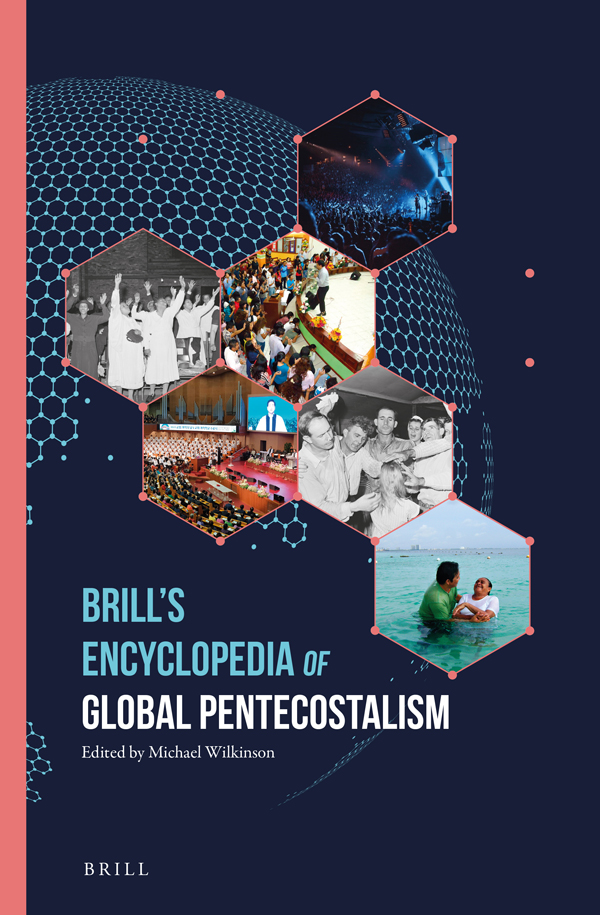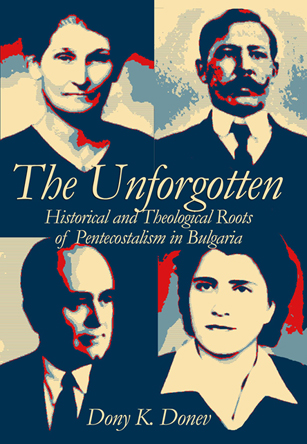Bulgarian Churches in Belgium (2021 Report)
 #1 Eglise Praise Center Rue de Gheude 54 1070 Brussels (occasional)
#1 Eglise Praise Center Rue de Gheude 54 1070 Brussels (occasional)
#2 Land van Waaslaan 78 9040 Gent
READ MORE:
- First Bulgarian Church in Chicago Opened in 1907
- Gateway Cities for Bulgarian Evangelical Churches
- How to Start a Bulgarian Church in America from A-to-Z
- Unrealized Spiritual Harvest as a Paradigm for Cross-Cultural Ministries among Migrant and Disfranchised Ethnic Groups in America Today
Bulgarian Churches in Italy (2021 Report)
#2 Crotone, via G.morelli 29 ITALY
READ MORE:
- First Bulgarian Church in Chicago Opened in 1907
- Gateway Cities for Bulgarian Evangelical Churches
- How to Start a Bulgarian Church in America from A-to-Z
- Unrealized Spiritual Harvest as a Paradigm for Cross-Cultural Ministries among Migrant and Disfranchised Ethnic Groups in America Today
Bulgarian Churches in Cyprus (2021 Report)
View Bulgarian Churches in Cyprus in a larger map
#2 Limasol, Pafos Str. 82
#3 Pafos, Niko Georgiu Str., Pano Pafos
#4 Larnaka, Navpakmu Str. 79
READ MORE:
- First Bulgarian Church in Chicago Opened in 1907
- Gateway Cities for Bulgarian Evangelical Churches
- How to Start a Bulgarian Church in America from A-to-Z
- Unrealized Spiritual Harvest as a Paradigm for Cross-Cultural Ministries among Migrant and Disfranchised Ethnic Groups in America Today
Bulgarian Evangelical Churches in the European Union (2021 Report)
- Bulgarian Evangelical Churches in Germany
- Bulgarian Evangelical Churches in Spain
- Bulgarian Evangelical Churches in England
- Bulgarian Evangelical Churches in France
- Bulgarian Evangelical Churches in Belgium
- Bulgarian Evangelical Churches in Italy
- Bulgarian Evangelical Churches in Cyprus
- Bulgarian Evangelical Churches in Crete
READ MORE:
- First Bulgarian Church in Chicago Opened in 1907
- Gateway Cities for Bulgarian Evangelical Churches
- How to Start a Bulgarian Church in America from A-to-Z
- Unrealized Spiritual Harvest as a Paradigm for Cross-Cultural Ministries among Migrant and Disfranchised Ethnic Groups in America Today
Historic Trail of Tears Connects Polk Homeschool Families
Historic Trail of Tears Connects Polk Homeschool Families
by Dr. Dony & Kathryn Donev, M.A., LPC, RTP
During the past 10 years Polk County, TN has seen a shift in its demographics with an insurgence of families from New York, Florida, California and even Eastern Europe. The latter location is perhaps overlooked not officially recorded having the most complex reasoning behind the numbers. One explanation could be adoptions or perhaps another could be due to immigrants being attracted to Gateway Cities. Such are the larger towns as Bonita Springs, Cape Coral, Fort Myers and Sanibel areas of Florida. In California these would be Cerritos, South Gate, Long Beach or Sacramento. And of course New York City provides the ultimate gateway. Therefore, these individuals are simply recorded as being from these Gateways.
Many of these families which have sought refuge, so to speak, in rural areas are ones that homeschool. But this is not the reason for this article; for it is only natural that one leaving a busy urban area would naturally want to get away from all aspects of city life and create a more intimate learning experience for their children. Such is readily available through the natural amenities and safe seclusion along the original Trail of Tears which had many routes and roundup or dispersion points other than the three main roads which are thought of first. One of them just happens to be in Polk County, TN described below.
The Georgia Road or present day Federal Road was a route of the Trail of Tears with the Tellico Blockhouse as its starting point. The route ran from Niles Ferry on the Little Tennessee River near the present day U.S. Highway 411 Bridge, southward into Georgia. The road continued southward via the Federal Trail connecting to the North Old Tellico Highway past the present site of Coltharp School, intersected Tennessee Highway 68 and passed the site of the Nonaberg Church. East of Englewood, Tennessee it continued on the east side of McMinn Central High School and crossed Highway 411 near the railroad overpass. Along the west side of Etowah, the road continued near Cog Hill and the Hiwassee River near the mouth of Conasauga Creek where there was a ferry near the site of the John Hildebrand Mill. From the ferry on the Hiwassee River, the road ran through the site of the present courthouse in Benton, Tennessee. It continued south on Welcome Valley Road and then crossed the Ocoee River at the Hildebrand Landing. From this point, the road continued south and crossed U.S. Highway 64 where the Ocoee Church of God is currently located. Proceeding south near Old Fort, the route crossed U.S. Highway 411 and came to the Conasauga River at McNair Landing. Near the south end of the village of Tennga, Georgia stands a historic marker alongside Highway 411, which states the Old Federal Road was close to its path for the next twenty-five miles southward. This is some 15 miles from the historic Chief Vann Plantation. It would have been at this point in Tennga that the Trail of Tears would have taken a turn onto GA-2 passing the Praters Mill near Dalton Georgia to connect in Chattanooga.
The reason for this article is to make the connection which goes deeper than simply establishing the Hildebrand Crossing route with Welcome Valley and Old Federal roads as the connecting path of one of the last detachments of approximately 1,200 with the original Trail of Tears. A careful reader would quickly discern the obvious geosocial connection between the new homeschool families in the Polk area and the historical Trail of Tears, which was brought to light in a recent discovery in the Polk County TN Homeschool Network. Nearly a dozen of these families, which in the last decade made their journey to rural living in Polk County live nowhere else, but along the historic trail. Coincidence? Perhaps. Planned? Doubtfully so because most were not aware of this information as this route of the Trail is not a popular one and as such has remained virtually enigmatic. Now, we are in a quest for the logic behind such happening as well as to see if there are other Polk Homeschoolers that happen to also live along this route. If you have any contributing information to this ongoing project, we would love to hear from you. Visit us at www.PolkHomeschool.com or reach out to [email protected].
Brill’s Encyclopaedia of Global Pentecostalism
Brill’s Encyclopedia of Global Pentecostalism (BEGP) provides a comprehensive overview of worldwide Pentecostalism from a range of disciplinary perspectives. It offers analysis at the level of specific countries and regions, historical figures, movements and organizations, and particular topics and themes. The online version of the Encyclopedia is already available
BULGARIA with a NEW Caretaker Cabinet until July
World Wires on Bulgaria: Caretaker Cabinet Will Have to Tackle Pandemic, Ensure Fair Elections
Bulgaria‘s President Rumen Radev called a snap parliamentary election on Tuesday for July 11 and appointed Stefan Yanev, his close security and defense adviser, as caretaker prime minister until a new government is formed.
The European Union’s poorest member state is heading to the polls again three months after an inconclusive election in April resulted in a fragmented parliament that failed to produce a government.
Yanev, 61, who was a deputy premier and defense minister in the first caretaker government Radev appointed in 2017, will be tasked to manage the coronavirus pandemic and ensure a fair election, the president said in a statement, confirming an earlier report by Reuters.
President Radev is a harsh critic of long-serving prime minister Boyko Borissov.
Yanev’s government will also have to decide whether or not to submit a national plan to Brussels on how Sofia plans to use more than 6 billion euros from the EU’s coronavirus Recovery Fund.
In charge of the country’s finances will be Assen Vassilev, 43, a graduate of Harvard University, who served as caretaker economy and energy minister in 2013. Vassilev was part of the team that prepared Radev’s proposals for projects to be financed with EU recovery funds.
Borissov’s incumbent center-right GERB party again emerged as the largest party after the April vote, but it had lost seats due to popular anger against entrenched corruption and was shunned by other parties for a coalition government.
After Borissov failed to form an administration, so too did attempts by a new anti-elite party led by TV host Slavi Trifonov, and by the third largest party, the Socialists.
Analysts say the fresh election in July is likely to produce another fragmented parliament that could complicate the formation of a government. A recent opinion poll showed Borissov’s GERB and Trifonov’s ITN (There is Such a People) party running neck-and-neck.
The Unforgotten
The Unforgotten: Historical and Theological Roots of Pentecostalism in Bulgaria
 This book tells the story of four early Pentecostal families who brought the message of Azusa to Bulgaria, Eastern Europe and Russia. The research has taken over a decade to complete. It started with a brief article on the beginning of the Pentecostal movement in Bulgaria, where unfortunately many church archives were destroyed during Communism. Consecutively, the research led my wife and I on a long journey from the Southern Baptist Historical Library and Archives in Nashville, to the Assemblies of God headquarters in Springfield, the Graduate Theological Union at Berkeley, Pusey Library at Harvard, the British and Foreign Bible Society in Cambridge, and countless Bulgarian churches.We are grateful to the Flower Pentecostal Heritage Center for making readily available their denominational archives. Dr. Albert Wardin graciously opened the door for research in Nashville and Berkeley, where most documentation of Voronaev’s early ministry are preserved. Dr. Cecil M. Robeck, Jr. of Fuller provided tremendous guidance to the life and ministry of Frank and Anna Bartleman through virtually every step of their journey and every address they occupied. We are also thankful to Dr. Oleg Bornovolokov of the Ukrainian Evangelical Theological Seminary in Kiev, who helped with various KGB/FSB documents and the NKVD dossiers from Gulag.The papers included in this book were presented at Society for Pentecostal Studies meetings between 2010 and 2021. The first part of the book appeared in vol. 30 (2010) of Assemblies of God “Heritage” magazine and their December, 2010 editorial. The Bulgarian Pentecostal Union published our translation and commentary of Voronaev’s correspondence in their monthly “Evangel.” In 2011, Dr. Vladimir Franchuk, translated our Voronaev’s papers in Russian and included them in his book “Revival: from the center of Odessa to the ends of Russia” just in time for the 90th anniversary of Pentecostalism in Russia. Most of the historiographical data presented in this book is being published openly for the first time.
This book tells the story of four early Pentecostal families who brought the message of Azusa to Bulgaria, Eastern Europe and Russia. The research has taken over a decade to complete. It started with a brief article on the beginning of the Pentecostal movement in Bulgaria, where unfortunately many church archives were destroyed during Communism. Consecutively, the research led my wife and I on a long journey from the Southern Baptist Historical Library and Archives in Nashville, to the Assemblies of God headquarters in Springfield, the Graduate Theological Union at Berkeley, Pusey Library at Harvard, the British and Foreign Bible Society in Cambridge, and countless Bulgarian churches.We are grateful to the Flower Pentecostal Heritage Center for making readily available their denominational archives. Dr. Albert Wardin graciously opened the door for research in Nashville and Berkeley, where most documentation of Voronaev’s early ministry are preserved. Dr. Cecil M. Robeck, Jr. of Fuller provided tremendous guidance to the life and ministry of Frank and Anna Bartleman through virtually every step of their journey and every address they occupied. We are also thankful to Dr. Oleg Bornovolokov of the Ukrainian Evangelical Theological Seminary in Kiev, who helped with various KGB/FSB documents and the NKVD dossiers from Gulag.The papers included in this book were presented at Society for Pentecostal Studies meetings between 2010 and 2021. The first part of the book appeared in vol. 30 (2010) of Assemblies of God “Heritage” magazine and their December, 2010 editorial. The Bulgarian Pentecostal Union published our translation and commentary of Voronaev’s correspondence in their monthly “Evangel.” In 2011, Dr. Vladimir Franchuk, translated our Voronaev’s papers in Russian and included them in his book “Revival: from the center of Odessa to the ends of Russia” just in time for the 90th anniversary of Pentecostalism in Russia. Most of the historiographical data presented in this book is being published openly for the first time.
SEE MORE at Amazon.com by clicking this link
SPRING in BULGARIA
New EU Vaccination Certificates Create Risk
Missionaries without COVID vaccine at a high risk of travel ban
Vaccination Certificates Create Risk of Two-Tier Society, Indirect Discrimination
Covid-status certificates being considered by ministers to help open up society could amount to unlawful indirect discrimination, the government’s independent equalities watchdog has advised.
As ministers decide whether the documents should be introduced as passports to certain events later this year, the Equality and Human Rights Commission has told the Cabinet Office they risk creating a “two-tier society”.
The watchdog also said employers should not be allowed to hire workers on a “no jab, no job” policy until all young people had been offered a vaccine, and that plans to make them mandatory for care workers helping older people may not be lawful
According to a submission seen by the Guardian, the EHRC said Covid-status certificates could be a “proportionate” way of easing restrictions, given the toll lockdown has taken on people’s wellbeing and livelihoods.
But it said they risked further excluding groups among whom vaccine take-up is lower – including migrants, those from minority ethnic backgrounds and poorer socio-economic groups – from access to essential services and employment.
“There is a risk of unlawful discrimination if decisions taken in this process disadvantage people with protected characteristics who have not received, or are not able to receive, the vaccine, unless they can be shown to be justified,” it said. “Any mandatory requirement for vaccination or the implementation of Covid-status certification may amount to indirect discrimination, unless the requirement can be objectively justified.”
The warnings emerged as the health secretary, Matt Hancock, gave the clearest indication yet that care workers would be required to have a vaccination or be refused deployment in care homes.
Launching a five-week consultation on the proposal, the government said the initiative could later be extended to the wider health and social care workforce. “Due to the importance of this issue, we intend to change the law quickly,” it added.
Despite care workers being in the highest priority category for jabs, Hancock said only around half of care homes in England had enough people vaccinated. Government scientific advisers believe 80% of staff and 90% of residents need to be vaccinated to provide a minimum level of protection against outbreaks of the virus.
Senior government figures had for months denied that any form of “vaccine passport” for domestic or international use would be introduced as the rollout of jabs got under way in the winter. But at the end of February, Boris Johnson announced a review would be launched into the idea to explore the complex ethical issues behind it. He touted the documents – that would be used to prove someone’s vaccine, test or antibody status – as a possible requirement to enter a pub or a theatre.
Since then, an interim report from the Cabinet Office review has ruled out the documents ever being necessary on public transport or in essential shops – though the government has declined to provide any definition of these. It has expanded access to testing in England this week, by offering everyone two lateral flow tests a week – a measure it would argue means the certificates would not just be available to those who have been vaccinated.
Johnson faces the prospect of a significant Tory rebellion if he pushes ahead with introducing the certificates and calls for a vote in parliament, with 41 Conservative backbenchers vowing to oppose them. Labour has previously vowed to vote against “vaccine passports” but has been less clear about its stance on a wider certificate scheme used to show someone’s vaccine, test or antibody status. It says it is still waiting for the government to formally present a firm proposal.
Marsha de Cordova, the shadow women and equalities secretary, said: “We share the EHRC’s concerns and hope the government will take note.”
Responding to the government’s call for evidence on Covid-status certificates, the EHRC said that if they were introduced, it should only be for a limited time and subject to regular review, along with “strict parliamentary scrutiny”.
Care home operators are divided over mandatory jabs. Barchester, one of the largest private operators, has already said it will make vaccines a condition of work, starting as soon as 23 April. Its chief executive, Pete Calveley, said: “It is a professional duty for care home staff to accept the vaccine unless there is a medical reason they should not.”
Other operators fear it will drive away staff in an already depleted workforce and that it is unreasonable to only make vaccines compulsory for care workers and not NHS staff.
The government has previously acknowledged the legal difficulty of mandatory vaccines. In February, the prime minister’s official spokesperson said: “Taking a vaccine is not mandatory and it would be discriminatory to force somebody to take one.” Robert Buckland, the justice secretary, has also said he believes making vaccines mandatory for existing staff is likely to require testing in the courts.
Employment lawyers said on Tuesday that the rule could breach the Human Rights Act and amount to indirect discrimination, if refusal was related to religious belief for example, and it was likely to be tested in the upper courts.
“There would have to be a very strong justification that mandating vaccines really does put a dent in the Covid case numbers,” said Ryan Bradshaw, an employment and discrimination lawyer at Leigh Day.
The government wants to make vaccination of carers part of the “fundamental standard” of providing safe care, enshrined in the Social Care Act. Care homes which fail to show their staff are vaccinated could, in the most serious cases, have their registration to operate cancelled.
Unison, a trade union representing health workers, described the plan as “the wrong approach” and called for persuasion – rather than coercion – of care workers, many of whom have cited fears, albeit so far unfounded, that the vaccine could affect pregnancies. Others have cited religious concerns, while practical issues of not being on shift when GPs arrived to deliver doses have also been highlighted.
With the vaccine programme in England now being extended to those in their late 40s and the government not promising to offer all those over the age of 18 a jab until the end of July, the EHRC said employers should not be able to discriminate when looking to hire only those who had been vaccinated. It advised: “The implementation of any policy would need to reflect the status of the vaccine rollout programme and ensure that it does not discriminate against younger people, who are unlikely to be vaccinated until later in the process.”
A government spokesperson said: “Covid-status certification could have an important role to play both domestically and internationally, as a temporary measure. We are fully considering equality and ethical concerns as part of our ongoing review.”















